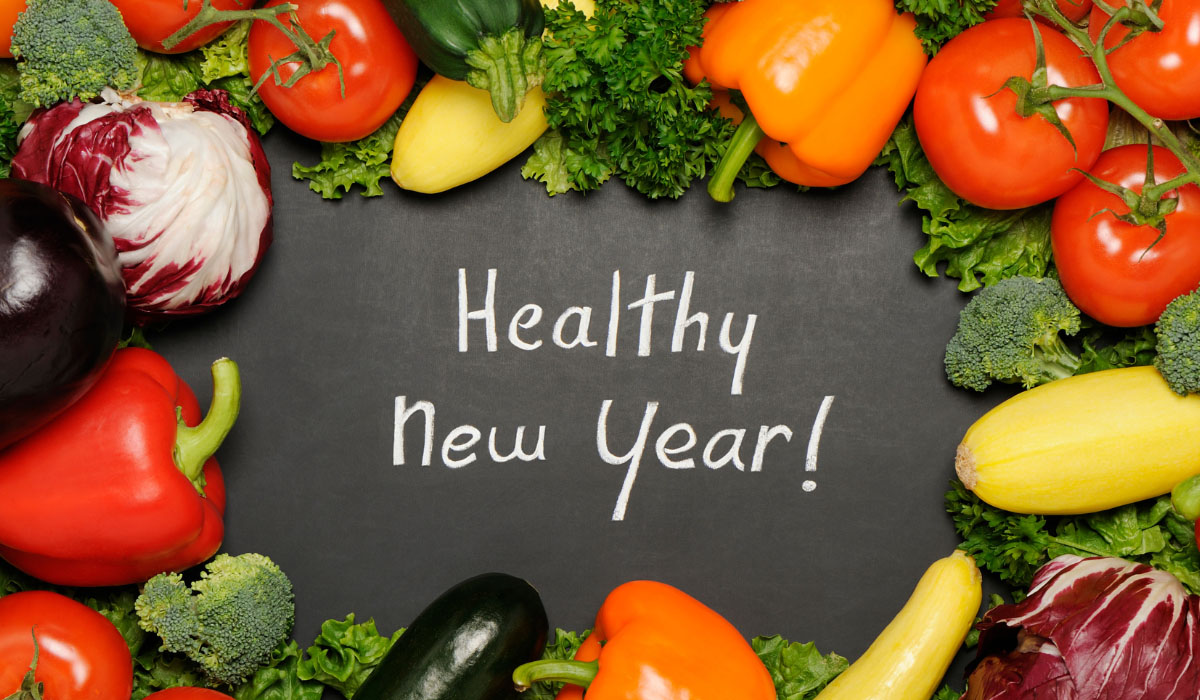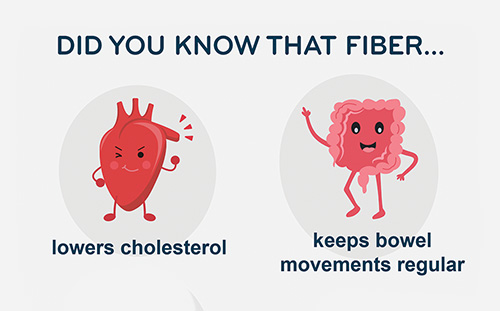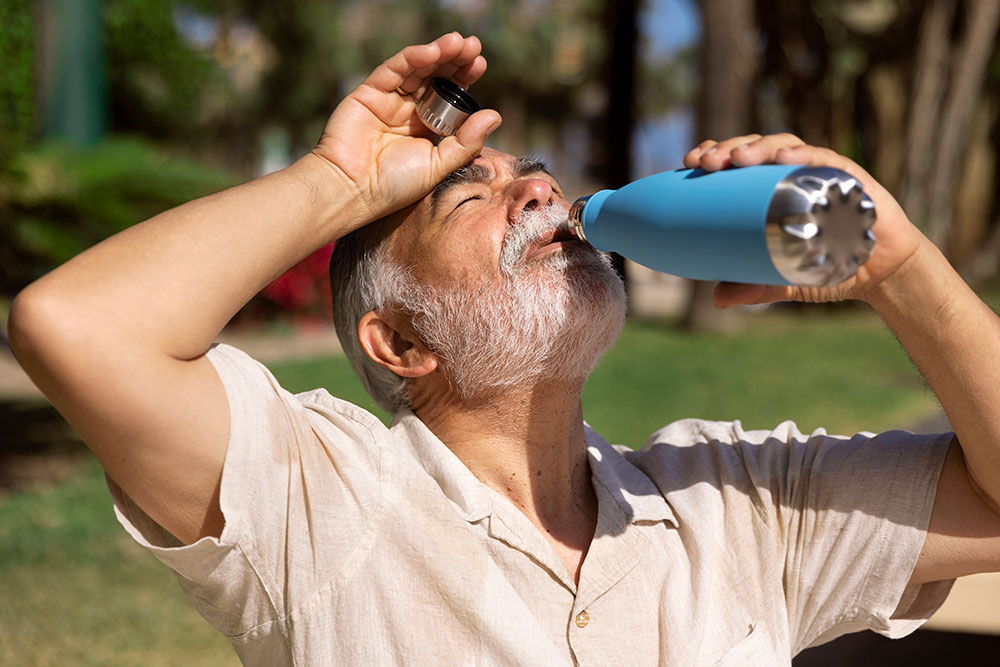
By Hannah Grant, RDN, Meals on Wheels San Francisco Nutrition Department.
Did you make a New Year’s Resolution to improve your health? At Meals on Wheels San Francisco, we strive to help seniors lead healthy lives.
Here are our top 5 tips we all can use to kick-start our healthiest year yet!
Add in Vegetables
A lot of people think “eating healthy” means removing foods from your diet. This year, let’s think about adding things in. Vegetables are packed with essential nutrients like vitamins, fiber, and antioxidants. Eating more vegetables can reduce your risk of heart disease, diabetes, and high blood pressure (7,8) And they also make your plate pretty! Get colorful and creative by adding red bell peppers to your scrambled eggs or purple cabbage to your sandwich.
Choose More Plant-based Proteins
Another food group to add to your plate this year is plant-based proteins. That doesn’t mean you have to buy expensive imitation products. Chickpeas, black beans, and lentils are examples of delicious, affordable options. These foods are high in fiber but low in saturated fat and cholesterol which makes them a healthy choice for your heart! (4) Plant-based proteins also use less water to produce (5) so you can protect your health and the planet at the same time.
Decrease Ultra-Processed Foods
We’ve talked about what to add, so is there anything we should cut back on? “Ultra-processed foods” like pastries, candy, hot dogs, chips, and soft drinks are high in salt, sugar, and saturated fat. Research shows that eating these foods increases your risk of heart disease, diabetes, and even cognitive decline. Luckily if you’re filling your plate with vegetables and plant-based proteins, there won’t be as much room for ultra-processed items.
Drink More Water
Most people don’t drink enough water. Ideally, women should drink 2.7 liters of water each day and men should drink 3.7 liters. However, the CDC estimates most American adults drink less than 2 liters of water a day. Our bodies need water for everything. Water helps maintain our body temperature and lubricate our joints. We even need water to digest food and absorb nutrients. So, if you want to get all the benefits from the vegetables you’re eating, it’s important to stay hydrated. Drinking enough water has even been linked to living longer (2).
Include Movement in Your Day
Exercise has so many benefits. It increases bone density and reduces your risk of insulin resistance which can lead to diabetes (1). Exercise even releases happiness chemicals in our brain called endorphins, so it’s a great way to fight off the winter blues. You don’t need to start an intense gym routine to get the benefits of exercise. Dancing, riding a bike, or taking an evening walk with friends are all great ways to increase your physical activity. You can even get a workout without leaving your chair!
Here’s a bonus sixth tip: Focus on progress, not perfection. You don’t need to follow all 5 tips at once. Pick your favorite or mix and match a few. The great news is that these strategies don’t expire. So even if you’re reading this in February or August, it’s never too late to start a healthy habit.
Happy “Healthy” New Year!
References:
1. Bird, S. R., & Hawley, J. A. (2017). Update on the effects of physical activity on insulin sensitivity in humans. BMJ Open Sport &Amp; Exercise Medicine, 2(1), e000143. https://doi.org/10.1136/bmjsem-2016-000143
2. Dmitrieva, N. I., Gagarin, A., Liu, D., Wu, C. O., & Boehm, M. (2023). Middle-age high normal serum sodium as a risk factor for accelerated biological aging, chronic diseases, and premature mortality. EBioMedicine, 104404. https://doi.org/10.1016/j.ebiom.2022.104404
3. Gomes Gonçalves N, Vidal Ferreira N, Khandpur N, et al. Association Between Consumption of Ultraprocessed Foods and Cognitive Decline. JAMA Neurol. Published online December 05, 2022. doi:10.1001/jamaneurol.2022.4397
4. Kurihara, A., Okamura, T., Sugiyama, D., Higashiyama, A., Watanabe, M., Okuda, N., Kadota, A., Miyagawa, N., Fujiyoshi, A., Yoshita, K., Ohkubo, T., Okayama, A., Miura, K., & Ueshima, H. (2019). Vegetable Protein Intake was Inversely Associated with Cardiovascular Mortality in a 15-Year Follow-Up Study of the General Japanese Population. Journal of Atherosclerosis and Thrombosis, 26(2), 198–206. https://doi.org/10.5551/jat.44172
5. Link, K. (2022, June 2). The Water Footprint of Protein. FoodPrint. https://foodprint.org/blog/water-footprint-of-protein/
6. Plain Water, the Healthier Choice. (2022, June 7). Centers for Disease Control and Prevention. https://www.cdc.gov/nutrition/data-statistics/plain-water-the-healthier-choice.html
7. Pokharel, P., Kyrø, C., Olsen, A., Tjønneland, A., Murray, K., Blekkenhorst, L. C., Bondonno, C. P., Hodgson, J. M., & Bondonno, N. P. (2022). Vegetable, But Not Potato, Intake is Associated With a Lower Risk of Type 2 Diabetes in the Danish Diet, Cancer and Health Cohort. Diabetes Care. https://doi.org/10.2337/dc22-0974
8. Volpe, S. L. (2019). Fruit and Vegetable Intake and Prevention of Chronic Disease. ACSM’S Health &Amp; Fitness Journal, 23(3), 30–31. https://doi.org/10.1249/fit.0000000000000474



